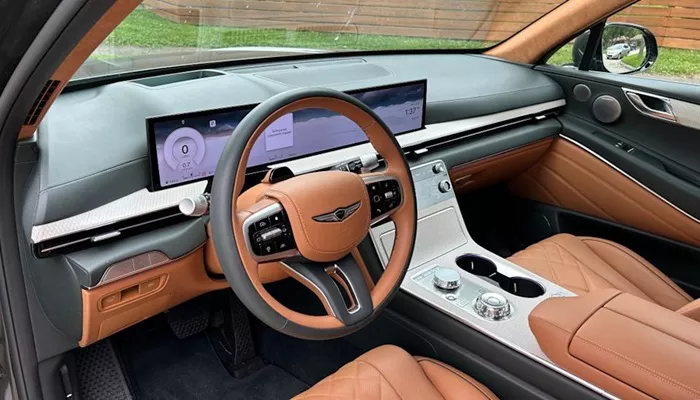Genesis, Hyundai’s luxury brand, will introduce its first hybrid SUV in September 2026. This marks a new step for the relatively young automaker, which has so far focused on electric vehicles (EVs) but is now shifting to include hybrids in its lineup.
The first hybrid model will be the Genesis GV80, with production starting in Ulsan, South Korea. Following that, a hybrid version of the smaller GV70 SUV is expected to enter production in March 2027. A fully redesigned GV80 hybrid is planned for the second half of 2028.
Although the exact launch date has not been announced, the GV80 hybrid could reach the market before the end of 2026. This new model aims to strengthen Genesis’s sales, especially in the U.S. market, where larger hybrid SUVs are popular.
The GV80 hybrid will likely combine a 2.5-liter turbocharged four-cylinder engine with an electric motor. This setup resembles the Mercedes-Benz GLE 450e, a plug-in hybrid SUV that will be a key competitor. However, Genesis plans to price the GV80 hybrid below the GLE 450e’s starting price of $71,350. The BMW X5 xDrive50e, which starts at $73,800, is another rival. BMW is also developing a more powerful hybrid X5 variant.
Genesis already offers many features at a lower price than these competitors. The new hybrid GV80 could attract buyers looking for luxury SUVs with efficient powertrains.
Hyundai’s luxury brand will continue expanding its hybrid lineup after the GV80. The GV70 SUV and the G80 sedan are expected to receive hybrid versions as well. The GV70 is set to get an Extended Range Electric Vehicle (EREV) variant, where a gasoline engine powers the electric motors but does not directly drive the wheels.
The conventional hybrids for the GV70 and G80 will probably use the same 2.5-liter turbo engine as the GV80, possibly tuned differently for each model.
Genesis has moved away from its earlier plan to become an all-electric brand by 2025. Instead, it is adopting a more flexible approach to powertrains. Manfred Harrer, head of Genesis and Performance Development at Hyundai, said, “Switching completely to EVs is taking longer than we expected. We cannot push only EVs to the market because not all customers are ready for that.”
More than a year ago, Hyundai announced increased hybrid production after slower-than-expected EV sales. This new strategy is now reflected in Genesis’s plans as well.

